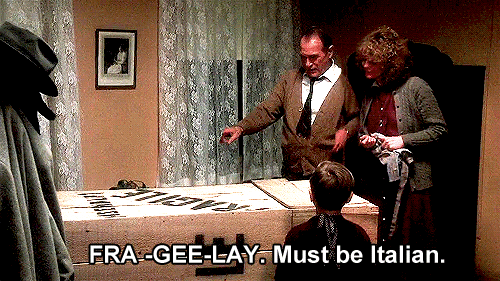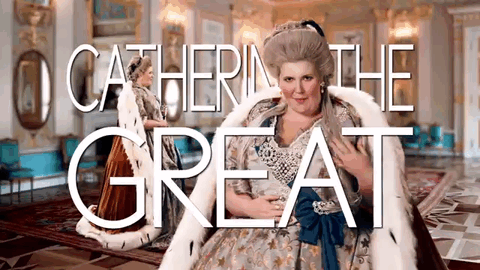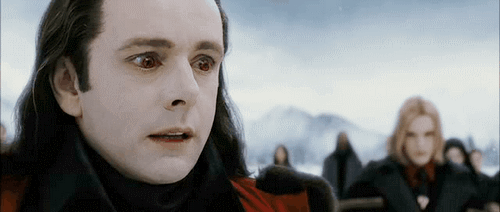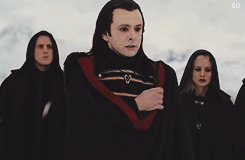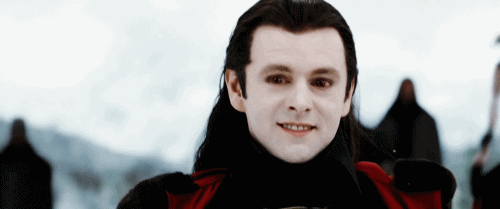BUT GUESS WHAT WE GET TO TALK ABOUT MY FAVORITE (and kalyna's least favorite) COUNTRY!!!!!!!!!!!!!!!! RUSSIA...
oh don't forget the finishing of prussia (lol i kid i kid lily and erin frances)
ANYWHO'S I'll start with the end of prussia topics bc chronological order in presentations...
KING FREDERICK WILLIAM I, so mr. yarnall aptly asked us, why do we care?
I can't really answer why you might care, but he was important because he made prussia the third best military IN THE WORLD (thats pretty impressive)
 |
| way to go prussia |
he had a super large and powerful military, but somehow managed to stay out of wars... it was because everyone was scared of prussia... they knew that they were the best and they didn't need to challenge them to find out... again, up top for prussia...
side note: king frederick william i liked his men to be tall... REALLY tall
the one downside of king frederick william i was that he wasn't really big into the arts... cue the transition into baroque architecture that keeps coming up and no one is quite sure why!
anyway, lets take a little jog back into the bazillion other fredericka in prussia (we accept lily's apology even though its not really her fault).
king frederick i was super into louis xiv and his extravagance so he sort of started a period in prussia where all his nobles were building castles (he even built a castle that our own lovely lily has been too!) we couldn't decide the word, but his style was like an omage / ode to louis
but frederick william i didn't exactly like art (you know the whole thinking for your own thing, he wasn't a fan of) so he sort of "reversed"
one last thing, why was prussia better than louis xiv --> prussia (aka frederick william i) had way more control than louis so he sort of crushed any opposition
OKAY WE FINALLY FINISHED PRUSSIA... MOVING ONTO RUSSIA!!!!
so russia is just over there being conquested by the mongols... aka THE MONGOLS ARE ONE THE REASONS THAT RUSSIA IS SO DIFFERENT!
so the mongol yoke (not egg yolk @brielle) --> used princes to control people, really only wanted the money
then ivan iii (ivan the great) comes in and is like whoa i am way better than the khan I'm gonna take over.....
ivan the great takes over and becomes the tsar!
SOOOOO EXCITING RIGHT?
the russians wanted to make it a third rome... cue quote about two romes falling but how there won't be a fourth rome... and its sort of important to remember why they wanted to be a third rome
rome is a symbol of power, but is also a distinctly european ideal, so it shows the russians were still influenced by the europeans
also ivan iii made religion of russia orthodoxy (not islam bc he wanted to drink) THIS IS ONE OF THE THREE PILLARS OF RUSSIAN ABSOLUTISM
THE THREE PILLARS OF RUSSIAN ABSOLUTISM ARE:
ORTHODOXY (the religion of russia as i just mentioned above)
AUTOCRACY (another word for absolutism, its the name for a gov with a tsar/supreme leader)
NATIONALISM (thinking that there is nothing better than your country, like nothing, and everything should become like your own country)
 |
| look at those beautiful columns/pillars |
this whole orthodoxy thing become important later on when nikon tries to create a reform in the church and the people of russia are just not having it --> they become old believers
the fact that the church was broken up kind of weakened the russian state and absolutist bc once again, orthodoxy was a pillar of russia.
anyway, ivan iv (ivan the terrible) takes over... his reign is divided into two parts because one part was spent conquering the lands of russia and the second part was spent conquering the people of russia... aka the second part he was trying to learn to control them
so for more info on ivan's gain of land you can look at brielle's and i's smore...
moving on to the time of troubles... why was this time so terrible???
so ivan the terrible died, wouldn't that be a good thing??? NO because he had killed his own son, and russia was left with no tsar to rule so everyone/everything went into pure chaos... poor ivan, he went sort of crazy after his wife died early on in his reign.
so we didn't get to baroque sad day... that'll be on tomorrow's blog!







